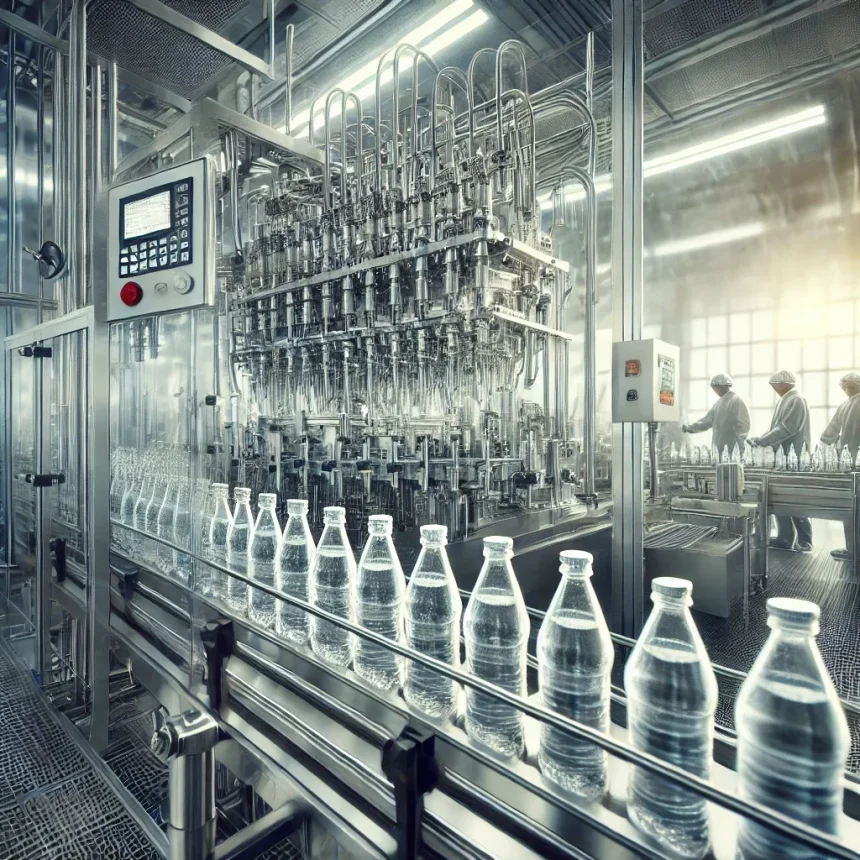In the fast-paced world of manufacturing and production, filling machines play a crucial role in ensuring efficiency and accuracy. These machines are indispensable in industries ranging from food and beverage to pharmaceuticals and cosmetics. As consumer demand for high-quality products continues to rise, the need for precision in filling technologies becomes more critical than ever. Filling machines are designed to handle a variety of products, from liquids to powders, and their versatility makes them a vital component in the production line. This article delves into the intricacies of filling machines, exploring their role in modern manufacturing and the technological advancements that have enhanced their precision and efficiency.
Filling Machines: The Role of Precision in Modern Filling Technologies
Precision is the cornerstone of modern filling technologies. In industries where consistency and accuracy are paramount, filling machines must deliver exact quantities of product with minimal deviation. This precision is achieved through advanced technologies such as volumetric filling, gravimetric filling, and flow meter-based systems. Each of these methods offers unique advantages, allowing manufacturers to choose the best solution for their specific needs.
Volumetric filling machines, for instance, are ideal for products with consistent viscosity. They use pistons or pumps to measure and dispense precise volumes of product, ensuring uniformity across all units. Gravimetric filling, on the other hand, relies on weight measurements to achieve accuracy, making it suitable for products with varying densities. Flow meter-based systems utilize sensors to monitor the flow rate of liquids, providing real-time adjustments to maintain precision.
The importance of precision in filling machines cannot be overstated. In the pharmaceutical industry, for example, even the slightest deviation in dosage can have significant consequences. Similarly, in the food and beverage sector, maintaining consistent product quality is essential for brand reputation and customer satisfaction. As such, manufacturers are continually investing in advanced filling technologies to enhance precision and efficiency.
For more information on the various types of filling machines and their applications, visit https://stm-pack.com/products/filling-machines/.
Technological Advancements in Filling Machines
The evolution of filling machines has been driven by technological advancements aimed at improving efficiency, accuracy, and versatility. Automation and digitalization have played significant roles in this evolution, enabling manufacturers to streamline operations and reduce human error. Modern filling machines are equipped with sophisticated control systems that allow for precise adjustments and monitoring of the filling process.
One of the most significant advancements in filling technology is the integration of IoT (Internet of Things) and AI (Artificial Intelligence). These technologies enable real-time data collection and analysis, allowing manufacturers to optimize the filling process and predict maintenance needs. IoT sensors can monitor machine performance, detect anomalies, and provide insights into production trends, while AI algorithms can analyze this data to improve efficiency and reduce downtime.
Additionally, the development of modular filling systems has provided manufacturers with greater flexibility. These systems can be easily reconfigured to accommodate different product types and packaging formats, making them ideal for companies with diverse product lines. The ability to quickly adapt to changing market demands is a significant advantage in today’s competitive landscape.
Conclusion: The Future of Filling Machines
As industries continue to evolve, the demand for precise and efficient filling machines will only increase. The integration of advanced technologies such as IoT and AI is set to revolutionize the filling process, offering manufacturers unprecedented levels of control and insight. As a result, filling machines will become even more integral to the production line, ensuring that products meet the highest standards of quality and consistency.
In conclusion, filling machines are a vital component of modern manufacturing, providing the precision and efficiency needed to meet consumer demands. As technology continues to advance, these machines will become even more sophisticated, offering new opportunities for innovation and growth. Manufacturers who invest in the latest filling technologies will be well-positioned to succeed in an increasingly competitive market.





